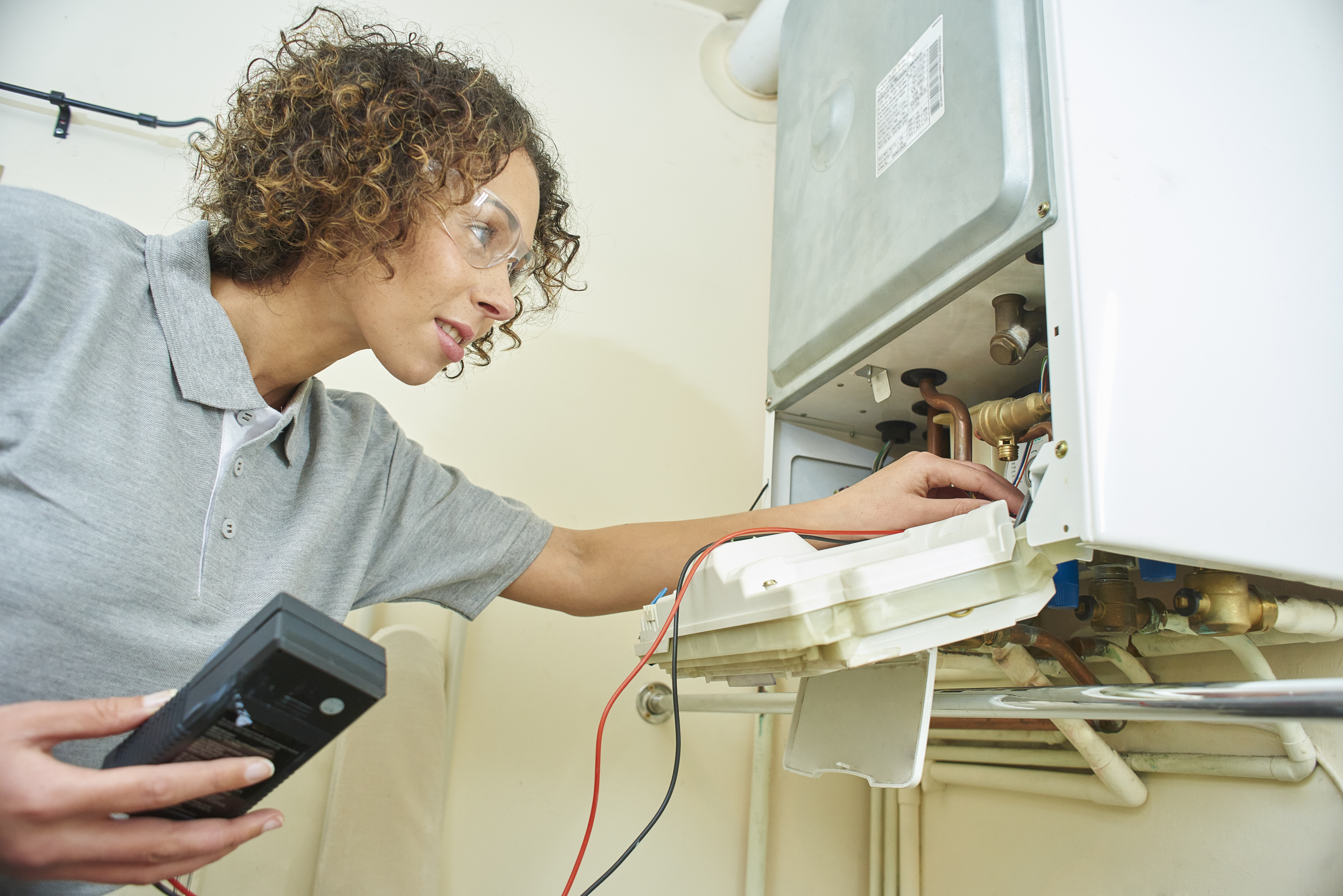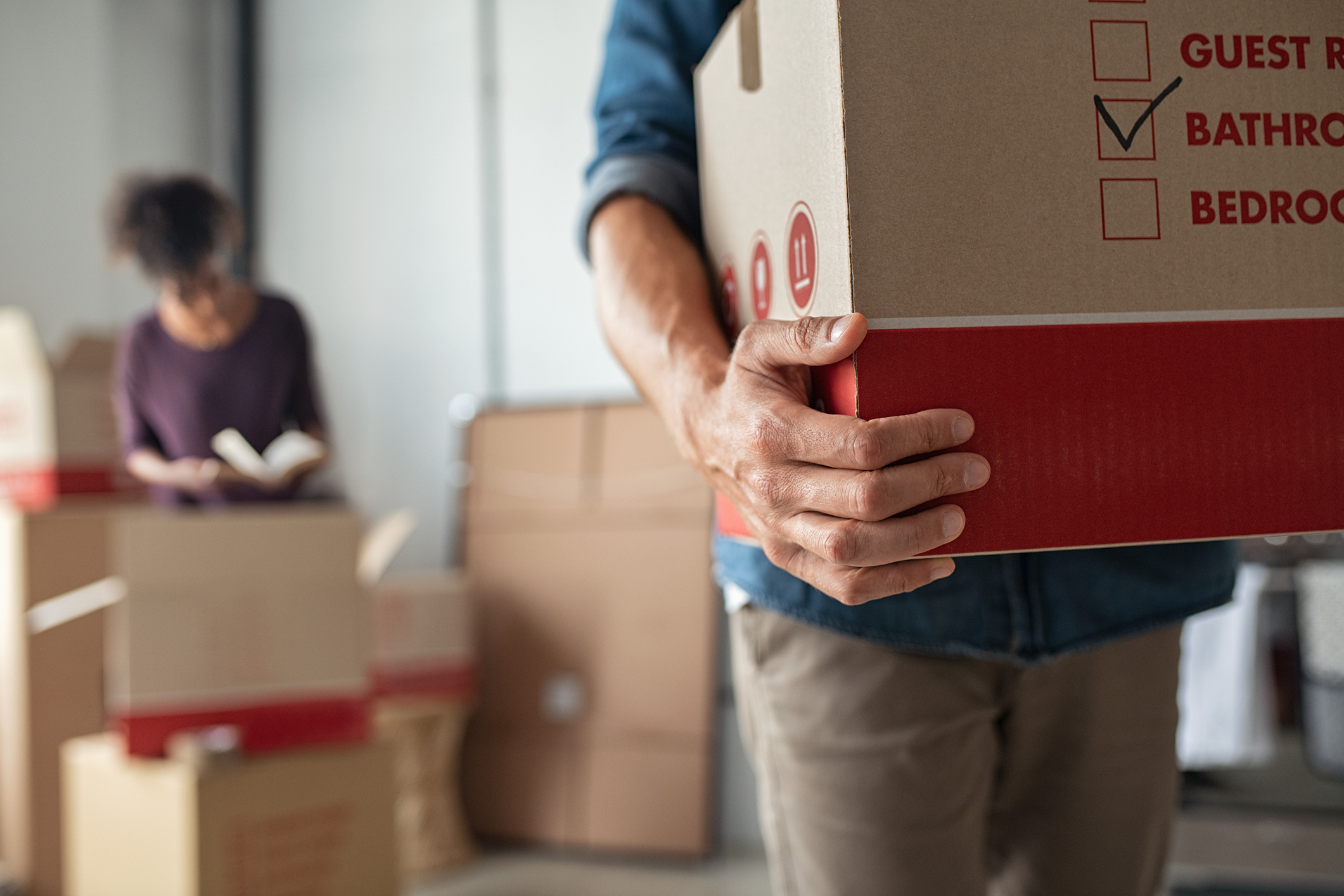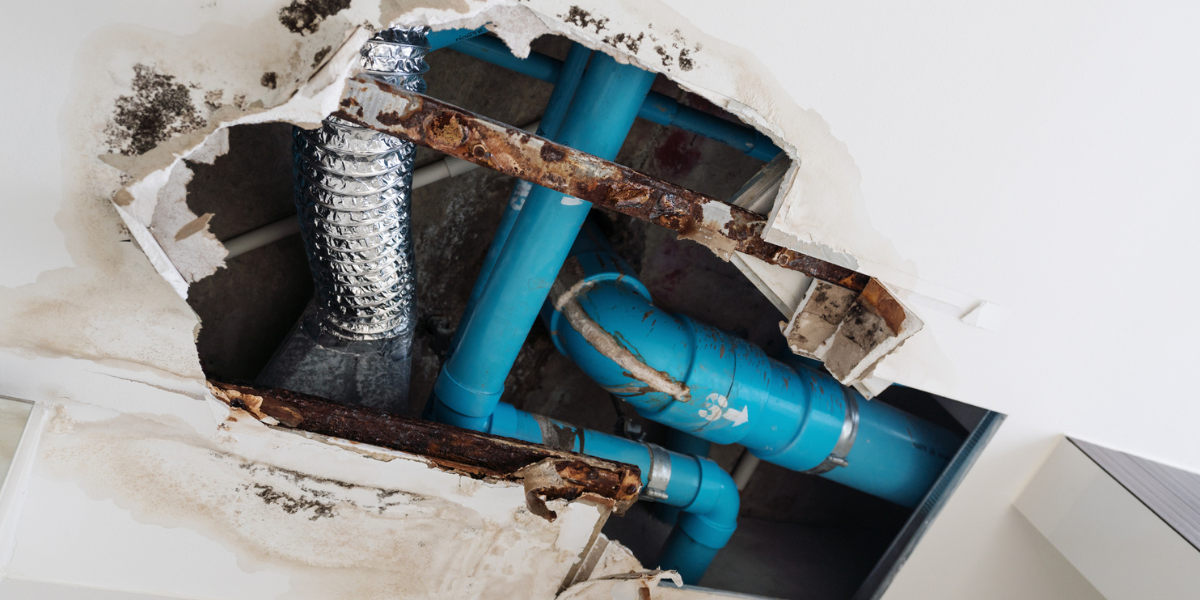Mechanical rooms. They are often out of sight, out of mind for many, with little foot traffic and an assumption that the machinery within the room will operate unsupervised.
These rooms typically host a variety of systems, including cooling, heating, electrical, and plumbing distribution equipment. Given the critical nature of the systems they contain, mechanical rooms can pose significant risks if not subjected to proper inspection and maintenance.
Why mechanical room safety matters
One significant risk associated with mechanical rooms is the potential for heating-related incidents, particularly those involving boilers. According to a report by the U.S. Fire Administration, an alarming average of 34,200 heating fires were reported annually between 2017 and 2019. Of these, a staggering 27% were attributed to malfunctions in fuel burners or boilers. These incidents often peak during the early evening hours, typically between 5-9 p.m., coinciding with the coldest months of the year.
But boilers aren't the only safety concern. Proper mechanical room safety procedures allow property managers to prevent unforeseen issues and keep residents and buildings safe. Continue reading to discover effective strategies for keeping your mechanical rooms in top shape.
1) Make good housekeeping a priority
 Housekeeping plays a pivotal role beyond mere maintenance; it directly impacts the safety and efficiency of workplaces. Cluttered environments hinder workers' mobility and access to equipment, elevating the potential for accidents. Effective housekeeping mitigates fire hazards and controls, minimizes slips, trips, and falls, averts falling objects, and ensures unimpeded egress and access pathways.
Housekeeping plays a pivotal role beyond mere maintenance; it directly impacts the safety and efficiency of workplaces. Cluttered environments hinder workers' mobility and access to equipment, elevating the potential for accidents. Effective housekeeping mitigates fire hazards and controls, minimizes slips, trips, and falls, averts falling objects, and ensures unimpeded egress and access pathways.
OSHA standards require that employers keep all walking-working surfaces in “clean, orderly, and sanitary condition.”
Best practices for mechanical room housekeeping include:
- Establish a regular cleaning schedule to ensure the room is free of dust, debris, and other materials that can accumulate over time.
- Store tools and equipment to prevent clutter and ensure that they are easily accessible when needed.
- Provide adequate lighting and ventilation to prevent mold and risk of injury.
- Keep floors clean to avoid the accumulation of combustible dust.
- Mark the floor with painted lines or tape to define specific work areas and prevent workers from accidentally tripping over equipment.
In addition, painting equipment piping with colors serves as a way for technicians to identify needs more quickly. Safety colors and cleanable, nonslip floor coatings make for easier cleanup, protect the concrete floor from harmful chemicals or contamination, and highlight potential tripping hazards.
2) Focus on fire prevention
Mechanical rooms pose a fire risk due to electrical and mechanical equipment, flammable materials, and combustible fuels. Storing combustibles in or around a heat source can increase the fire load and the likelihood of a fire from occurring. Always maintain a buffer zone of at least 3 feet around all electrical panels and equipment and a 36-inch clearance between flammable and combustible materials and any heat source. Never store gasoline or paint in a mechanical room.
A fire starting in a mechanical room can quickly spread to other areas, causing severe damage and putting residents at risk.
Fire prevention best practices include:
- Regularly inspection and maintenance of all fire suppression systems, alarms, and equipment. Test fire alarms annually, as required by the licensing agency and in accordance with NFPA 25.
- Conduct regular and routine maintenance of equipment and assets to keep them running and prevent any costly unplanned downtime from unexpected equipment failure.
- Repair any openings in walls, windows, or floors to prevent unauthorized entry or a fire from spreading. Fire barriers, such as walls and doors, prevent a fire from spreading.
- Properly mark all doors to signify if they are or are not an exit, per NFPA 101 and OSHA standards.
3) Develop security protocols
PHAs should develop security protocols to control access and limit unauthorized access into mechanical rooms. Intruders can tamper with equipment, steal valuable materials, or cause intentional damage that can disrupt building operations and endanger staff and residents.
Security best practices include:
- Developing security protocols to control access and limit unauthorized entry.
- Installing access control systems such as key cards or biometric readers.
- Equipping the mechanical room with video surveillance cameras to monitor activity in and around the area.
- Keeping mechanical room doors secured and always locked.
Key Takeaways
Mechanical room safety is critical for the overall safety of commercial and industrial facilities. By following best practices for housekeeping, fire protection, and security, PHAs can create a safe working and living environment and reduce the risk of accidents, fires, and unlawful entry.
Free Resource: Mechanical Room Best Practices
Join us for a walk through real mechanical rooms and learn maintenance and safety tips for multifamily properties. The video also details best practices for preventing hazards, maintaining equipment, and ensuring compliance with safety regulations.
Enhance Your Skills: Discover Additional Learning Resources from HAI Group Online Training
How To Conduct Routine Inspections
OSHA and Workplace Safety - Exit Routes, Fire Safety, and Emergency Planning
OSHA and Workplace Safety - Walking, Working Surfaces, and Personal Protective Equipment
This article is for general information only. HAI Group makes no representation or warranty about the accuracy or applicability of this information for any particular use or circumstance. Your use of this information is at your own discretion and risk. HAI Group and any author or contributor identified herein assume no responsibility for your use of this information. You should consult with your attorney or subject matter advisor before adopting any risk management strategy or policy.






